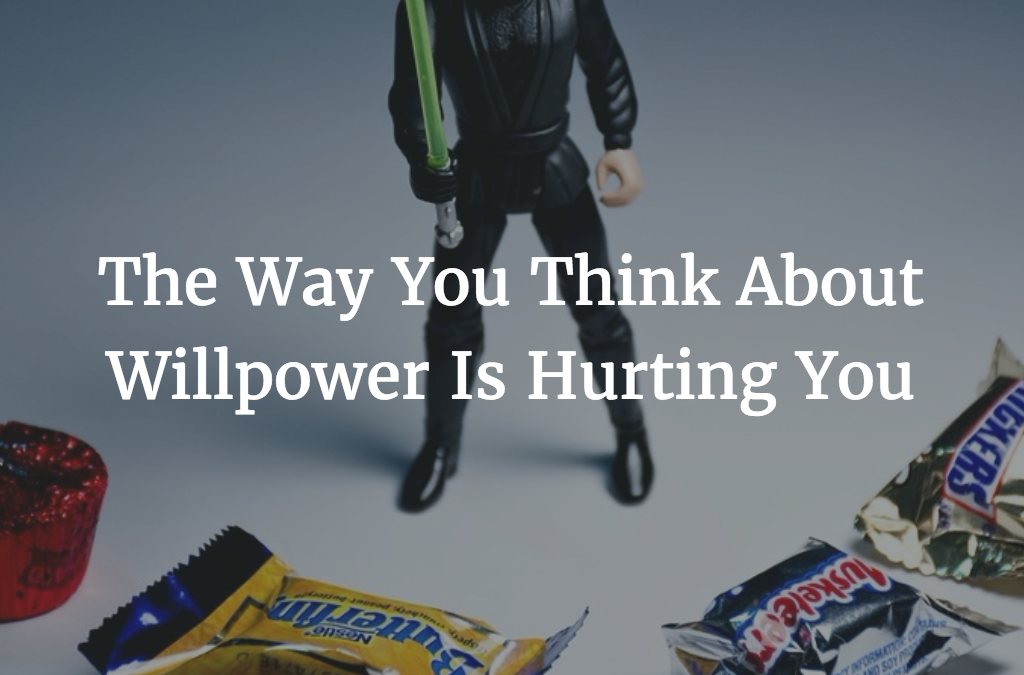Source: Nir and Far Not so long ago, my after work routine looked like this: After a particularly grueling day, I’d sit on the couch and veg for ho

Not so long ago, my after work routine looked like this: After a particularly grueling day, I’d sit on the couch and veg for hours, doing my solo version of “Netflix and chill,” which meant keeping company with a cold pint of ice cream. I knew the ice cream, and the sitting, were probably a bad idea, but I told myself this was my well-deserved “reward” for working so hard.
Psychological researchers have a name for this phenomenon: it’s called “ego depletion.” The theory is that willpower is connected to a limited reserve of mental energy, and once you run out of that energy, you’re more likely to lose self-control. This theory would seem to perfectly explain my after-work indulgences.
But new studies suggest that we’ve been thinking about willpower all wrong, and that the theory of ego depletion isn’t true. Even worse, holding on to the idea that willpower is a limited resource can actually be bad for you, making you more likely to lose control and act against your better judgment.
The Ego-Depletion Myth
One of the most pervasive bits of folk psychology may be the belief that self-control is somehow “spent.” The idea received scientific support in the late 1990s, when the psychologist Roy Baumeister and his colleagues at Case Western Reserve University put it to the test, conducting an experiment that has since been cited over three thousand times by their academic peers.
In the study, the researchers asked two sets of test subjects to wait in a room where there were two plates of food. One plate held fresh-baked cookies, their scent wafting through the room. On the other plate lay dull red and white radishes. Each group was allowed to eat from only one plate but not the other. The thinking went that the group allowed to eat only radishes would have to expend serious willpower to resist eating the cookies.
Next, the researchers gave both groups a puzzle to work on. Unbeknownst to the study’s participants, the puzzle was designed to be impossible to finish. The researchers wanted to see which group would work on the task longer, and anticipated that the people in the radish group—who would have spent significant reserves of energy trying not to eat the cookies—would give up on the puzzle sooner. That’s exactly what happened.
The study participants who had denied themselves cookie yumminess lasted an average of just eight minutes, while the cookie eaters (and a control group who did only the puzzle-solving part of the experiment) lasted nineteen minutes. The study concluded that the radish eaters’ egos had clearly been depleted.
But had they?
In 2011, Baumeister teamed up with the New York Times journalist John Tierney to publish Willpower: Rediscovering the Greatest Human Strength. The book, with its mainstream appeal, soon became a best seller. Its authors cited several studies demonstrating the ego-depletion theory. In addition, one notable study showed a seemingly miraculous way to restore willpower: by consuming sugar. The study claimed that participants who had sipped sugar-sweetened lemonade demonstrated increased self-control and stamina on difficult tasks.
Learn how to suck less at multitasking and become a mental block ninja. Download a copy of my simple brain hacks and get more done:
Fluke, Fake, or For Real?
The beauty of the scientific method is that it accepts, even encourages, doubt. Unlike religious miracles taken on faith or political dogma blindly accepted by party diehards, scientific studies can be tested and new evidence considered. Scientific studies (particularly those with ready-for-press conclusions) beg to be redone to determine if the effect seen in the original study was a fluke, a fake, or for real. Unfortunately for Baumeister and his collaborators, the ego-depletion theory’s proverbial cookie has begun to crumble.
A recent study published in Perspectives on Psychological Science, which used Baumeister-approved experiments and involved over two thousand participants, attempted to reproduce Baumeister’s results but found no evidence of ego depletion. Furthermore, two additional studies, both appearing in the journal PLOS ONE, could not replicate the original study’s results. Baumeister has disputed the methodologies used in some of the follow-up studies, but more than one scientist now doubts the theory of ego depletion.
The scholar Evan Carter, at the University of Miami, was one of the first to challenge Baumeister’s findings. Carter looked into a 2010 meta-analysis of nearly two hundred experiments that concluded ego depletion was real. Upon closer inspection, he discovered that the meta-analysis showed a “publication bias” in which studies that produced contradictory evidence were not included. When factoring in the results of those studies, he concluded there was no…

COMMENTS